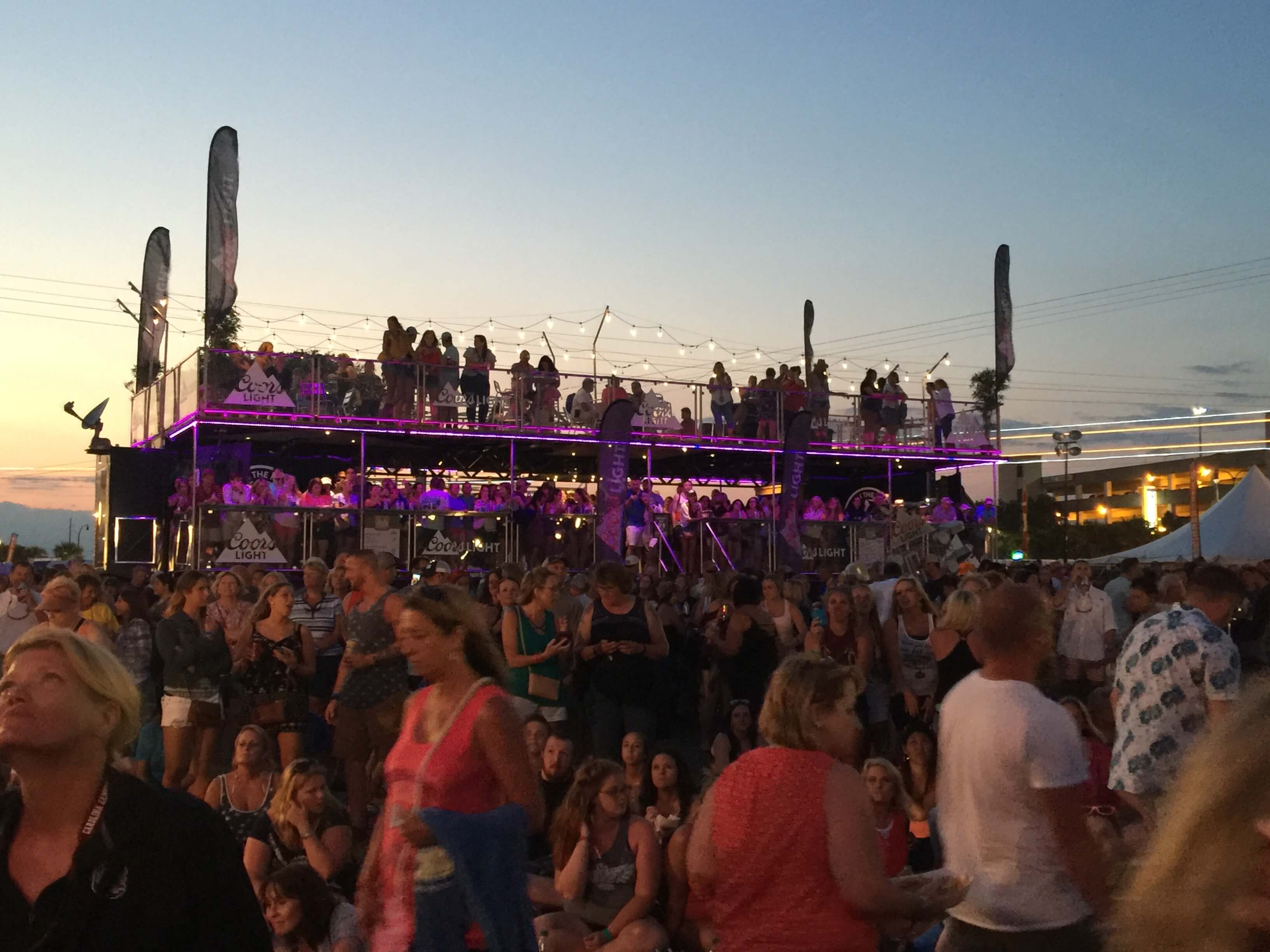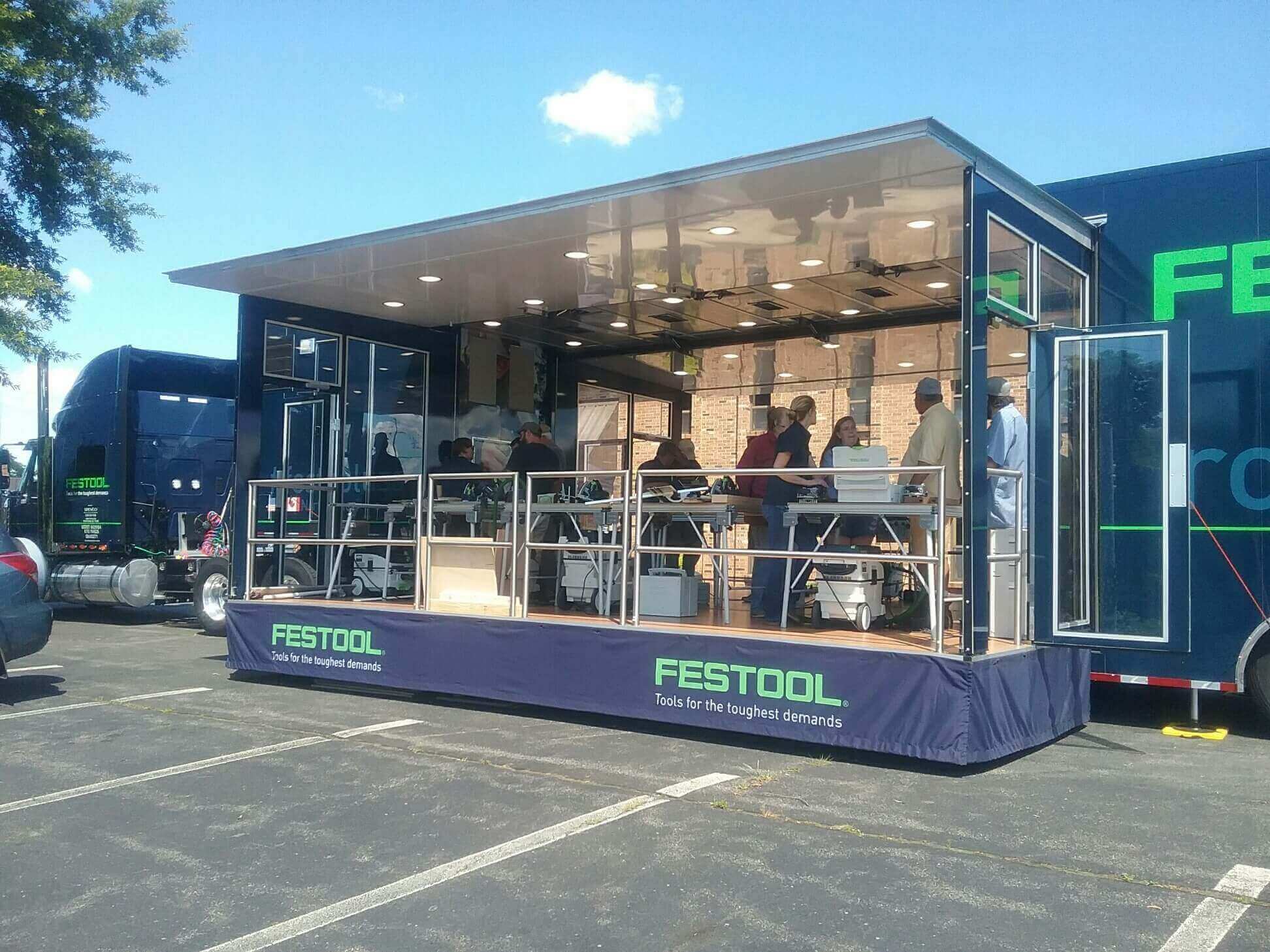As part of our definitive guide to mobile marketing vehicles, we touched on the importance of choosing the right partners to help you develop a successful experiential marketing program. Quite often, this means you might need to bring several different companies together as a team to bring a program to life. At the end if this list we’ll touch briefly on how to make that happen.
Before we do that, let’s run through who the players are and what these various companies do (or at least should do) well in the experiential marketing space.
The Marketing Agency
This is a company that provides a broad range of marketing services to build brands and develop sales channels. These companies vary greatly in size and breadth of services, but most can help you refine your marketing strategy as well as handle promotional strategies, graphic design, web design, social media marketing, videos, print and digital advertising, public relations, campaign development, direct mail, etc. Look for a partner who combines smart strategy, solid creative and measurable results. They can also be good resources for finding other vendors you’ll need along the way.
The Exhibit House
Sometimes known as Display Houses or Exhibit Companies, these vendors specialize in the design and production of trade show displays and booth graphics for exhibitors. A full-service Display House facility is usually dedicated to graphic and exhibit design, production, custom fabrication, storage and preparation of exhibit properties. They should also be capable of handling the administration of all logistics and show floor services. Basically, everything an exhibitor needs to design and build an exhibit and get it in and out of trade shows.
The Event Agency
As the name suggests, these agencies are focused on planning and managing special events or meetings. The scope of each project and the nitty-gritty details vary depending on the industry, company size and more. They can help you with event-specific strategy, theme, goals, content, speakers, and venue management. Often, they can create a branded event website with secure payment processing, and take on promotion, social media management, attendee confirmation. They tend to facilitate gathering leads on-site at the event, as well.
The Experiential Agency
These companies are hybrids, combining a broader range of a marketing agency with the practical savvy of an event producer. They focus on engagement marketing – a distinct subset of the marketing mix. These are specialists in creating moments that have a memorable impact on the consumer, inspiring them to share with their friends both online and offline. These experiences could include an event, a part of an event, or a pop-up activation not tied to any event.
Experiential agencies can be an attractive option as a partner. The key here is understanding how these agencies vary in the services they can perform in-house. If an experiential agency doesn’t have a service in-house, it will sub-contract that scope of work to another firm. While some things are always outsourced – like catering and entertainment — other things like fabrication are also outsourced. For instance:
- If they do not supply traveling brand ambassadors, they will hire local brand ambassadors through a temporary staffing firm or a talent agency.
- If they do not employ CDL drivers, they will hire commercial owner-operators to drive vehicles.
- If they do not have fabrication capabilities, they will hire an exhibit house to fabricate assets, or a specialty vehicle manufacturer to create a promotional vehicle.
- If they don’t have digital capabilities, they may hire web designers, or virtual reality production companies, or other types of vendors.
Each company offers different combination of services. It’s a good idea when interviewing any agency to ask “what services will you outsource?” and “Who, exactly, will be doing that work?” If they can’t go down the hall and get that person, realize your work will likely be shopped to their pool of contract workers or an online service coordinator like Upwork, Freelancer.com, or DesignCrowd.
This works fine for some areas, not as well for others, namely fabrication. If they don’t have in-house capabilities, the agency will have no choice but to hire someone to build your assets. You’ll likely have no say in who they hire, how talented their staff is, or how much they pay. (There is a silver lining to this, though, if you keep reading.)
The Exhibit Fabrication Firm
This is a firm that designs, engineers, and fabricates marketing exhibit assets. We’ve found that the difference between a fabricator and an exhibit house is how they build. The exhibit house builds trade show displays from a menu of structures. A Fabricator builds custom pieces from raw steel, wood, fiberglass, plastics, or other materials.
The Mobile Exhibit Fabricator
This is a company that designs, engineers and modifies mobile marketing vehicles – although they may not build the vehicle from scratch. They may renovate RVs, or brand trucks, or install awnings and graphics. They would then turn the completed asset back over to the Brand or Agency to execute the program. (We’ve reviewed the challenges of modifying mass-produced vehicles for roadshows before.)
OEM Trailer, RV or Bus Manufacturer
OEM manufacturers have true manufacturing processes and they tend to stick with what they know. That is, trailer manufacturers make trailers, RV and bus manufacturers make RVs and buses. But they make them for a variety of uses. Product lines could include freight trailers, refrigerated trailers, horse trailers, or tour buses, transporters, motorhome coaches. Many of these OEM manufacturers have “divisions” for specialty products, where they will produce custom work.
Converter or Integrator
This is a fabricator who takes the shell from an OEM manufacturer — a trailer, an RV, a cab and chassis combination, a box truck, a tour bus – and converts that shell to a finished product. They differ from a mobile exhibit fabricator in that they are usually more consumer-facing than business to business; think converting a Tour Bus to a superstar’s high-end motorhome. The bus manufacturer (like Prevost) sells the shell to an Integrator for finishing.
The Specialty Vehicle Manufacturer
A specialty vehicle manufacturer is an OEM manufacturer who builds custom vehicles for unique applications – ambulances, firetrucks, police SWAT vehicles, mobile generators, mobile training simulators. These companies tend to build vehicles from the ground up, making them extremely good at what they do.
And at the logistics end of the spectrum, there are essentially three kinds of companies.
- A trucking company owns trucks and trailers and will haul freight or equipment to whatever destination. They are used in our industry to simply transport event assets to but have no responsibility outside of transport. With marketing tour trailers this is known as a “drop and hook” contract.
- A freight broker or agent is a company with no trucks or trailers. Instead, they broker freight with freight haulers. Many exhibit houses have a logistics division that brokers freight to and from shows.
- A Tour Logistics company is a trucking company who manages logistics, program management, logistics and warehousing for a variety of industries like film, music, motorsports, and marketing.
Putting the team together
When it comes to experiential marketing vehicle programs, there are few players who do it all. However, there are companies who stand out as being able to check multiple boxes. Specialty vehicle manufacturers who offer exhibit design, fabrication, program management, event promotion and tour logistics make particularly strong partners.
It’s not just because they can do so many things well. It’s because they can be (and sometimes are) the people the marketing firms and experiential agencies call on to execute their strategies and concepts. (Remember the silver lining I mentioned earlier?) The specialty vehicle manufacturer is accustomed to coming up with unique solutions. So it’s no surprise that they tend to be exceptional at collaboration.
Therefore, even though your marketing agency may get the ball rolling, it’s a good idea to get a specialty vehicle manufacturer in the conversation early. Working with you, these partners are ideally positioned to access the right resources you need.
Want to know more about how SPEVCO collaborates with other partners to create exceptional experiential marketing vehicles? Give us a shout and we’ll be happy to share our experiences. Or, click around our blog to some of our case studies.





